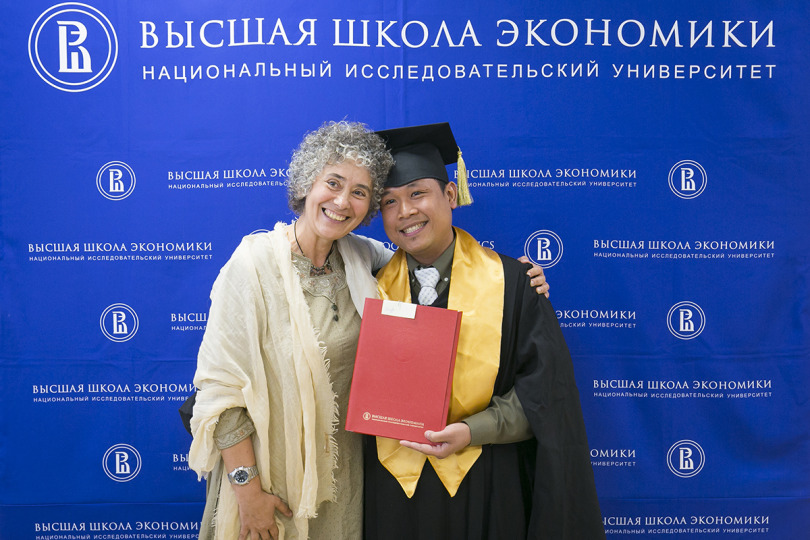New Foresight: Effective Solutions in Challenging Areas
In the latest issue of ‘Foresight’ (2015, Vol. 9, No 2) consideration is given to the long-term prospects of the market of hybrid cars and nuclear energy, development of entrepreneurship, and the factors behind people's willingness to engage in continuing education; new tools to assess the quality of research are also proposed.
'I’ve Got the Tools to Make Friends with Russians'
Juan Sota is from Madrid. He finished school in Spain and came to Russia to study at the Pre-University Training Faculty hoping to progress to a degree course at the School of History at HSE.
New International Labs at HSE St. Petersburg to Study Economy of Health and Game Theory
On June 26, the HSE Academic Council approved the opening of two new international laboratories. Specifically, the St. Petersburg School of Economics and Management will gain a laboratory for the study of healthcare economics, management, and policy, as well as a laboratory for game theory and decision-making. The labs' academic supervisors will be renowned international scholars.
Student at HSE Moscow Institute of Electronics and Mathematics Wins Technology Contest
The finals of the Foundation for Assistance to Small Innovative Enterprises’ Moscow Youth Start 2015 Bright Spark contest were held over July 24-25. Fifth year student at the HSE Moscow Institute of Electronics and Mathematics Maria Pavlova (Applied Mathematics major) was one of the winners, with her project to ‘develop an automated device to diagnose heart disease’.
Masters in Global Business Students Defend their International Projects Successfully
On the 15th June the University of Bergamo held a grand closing ceremony for the international part of the Masters in Global Business. Since October 2014, 25 students from HSE Nizhny Novgorod, the Johannes Kepler University and the University of Bergamo have been studying and travelling together to courses at each of the three universities, learning about the cultural differences and particular ways of doing business in Russia, Austria and Italy.
Centre for Youth Studies in Glasgow
The Centre for Youth Studies’ long-term and productive cooperation with the University of Glasgow and the Centre for East European and Russian Studies is still underway. At an annual research forum the university hosted in Glasgow, six researchers from HSE’s Centre for Youth Studies presented papers at a separate panel devoted exclusively to the Centre’s work.

Indonesian Public Officer Graduates from HSE
Political Analysis and Public Policy is the most popular Master’s programme among HSE’s international students. It draws people with professional experience as well as those fresh from Bachelor’s degrees to do research. Indra Prasetya Adi Nugroho is one of the 2015 new Master’s graduates. He came to HSE from a job in the Indonesian government.
ICSID Conference — an Annual Academic Highlight for Russian Political Economists
On 29th June — 1st July the International Centre for the Study of Institutions and Development (ICSID) at HSE Moscow will hold its fourth annual conference. The theme this year is Institutions, Elites and Collective Action in the Developing World. Michael Rochlitz, Assistant Professor at the School of Political Science at the HSE Faculty of Social Sciences is among the impressive line-up of international specialists in the field who will be speaking at the conference. The HSE English News Service asked him about the focus of the 2015 conference, what new things it has in store and why he thinks it is definitely something to get excited about.
HSE-MSU Sailing Regatta Set to Reach International Level
The first sailing regatta between HSE and Lomonosov Moscow State University (MSU) was held in the Strogino water meadows and served as the beginning of a new tradition for student club competitions. Students from the two universities’ teams agreed to form a single team to participate in next year’s world sailing championship, which can be considered the main outcome of the regatta. And for those who are more interested in numbers, the teams were tied for most of the day, but it was MSU that won the five races with a score of 3:2.

